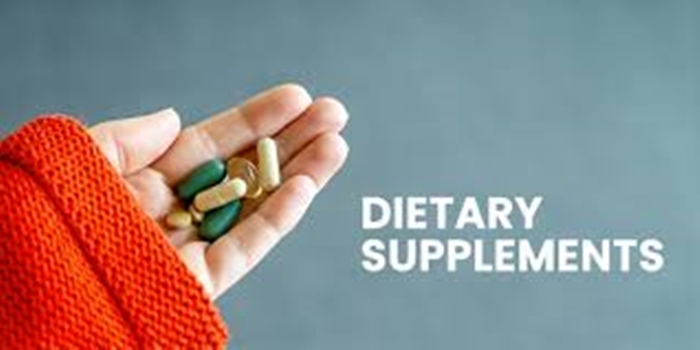In this article, we discussed the meaning of dietary supplements, the benefits, examples, the risk, we also talked about the pros and cons,
Definition
A dietary supplement is a product that’s taken by mouth to supplement or enhance your diet:
Dietary supplements contain dietary ingredients, such as vitamins, minerals, herbs, amino acids, enzymes, and more They come in many forms, including tablets, capsules, soft gels, liquids, powders, bars, and gummies. They’re not medicines and aren’t intended to treat, diagnose, cure, or prevent diseases.
Some examples of dietary supplements include:
Vitamins D and B12
Calcium and iron
Echinacea and garlic
Glucosamine
Probiotics
Fish oils
Multivitamins
Natural weight-loss aids
Certain types of energy drinks
You might need a dietary supplement if:
You’re an older adult and have trouble absorbing nutrients from foods
You avoid certain foods, like animal products if you’re vegan
You’re pregnant or breastfeeding
You have a chronic health condition
Some benefits of dietary supplements include:
Bone health: Calcium and vitamin D can help build strong bones and reduce bone loss.
Heart health: Omega-3 fatty acids from fish oils may help some people with heart disease.
Vision health: A combination of vitamins C and E, zinc, copper, lutein, and zeaxanthin may slow down vision loss in people with age-related macular degeneration.
Birth defects: Folic acid can decrease the risk of certain birth defects.
General wellness: Multivitamin/mineral supplements can help you get the recommended amounts of vitamins and minerals you need.
Other health conditions: Some experts hypothesize that multivitamin/mineral supplements may reduce the risk of cancer or cardiovascular disease.
What are the possible risks of taking dietary supplements.
liver or other organ damage.
reduced bone strength.
fetal development abnormalities.
increased risk of bleeding.
changes in your response to anesthesia.
reduced effectiveness of chemotherapy.
nervous system damage.
What are the Advantages of Dietary Supplements?
Having supplements is much easier and more convenient than eating whole foods, and they help in numerous ways, including:
To Prevent Diseases: – A regular diet might not provide enough essential nutrients for some people. For example,
Only a few foods contain vitamin D, which is necessary for calcium absorption and for developing strong bones. Taking a supplement could prevent diseases like arthritis, osteoporosis, etc.
Omega-3 fatty acids can prevent heart diseases, anxiety and depression, skin disorders, and asthma in children. However, vegetarians might miss out on them because they are abundant in fishlike salmon and tuna. Therefore, it is essential to take an omega-3 supplement.
What Are the Disadvantages of Dietary Supplements?
Supplements Cannot Replace the Nutrients in Natural Foods:
Supplements support food habits but do not substitute for the nutritional gaps completely, and they may hinder the body’s ability to absorb nutrients when taken regularly.
They also have side effects, like nausea, headaches, liver damage, and dizziness.
Overdosing of Supplements:
Taking too many supplements may increase toxicity. So it is always better to consume nutrients naturally than in synthetic forms.
Sometimes the body might not absorb these supplements, and they could also be washed away in the urine, which could be a waste of money.
Interaction with Other Drugs:
Supplements can interact with other prescribed drugs and can be harmful to health. Hence it is always advised to take supplements on the advice of a medical expert.
Conclusion
Maintaining a healthy lifestyle and a balanced diet is advised to prevent diseases. Supplements can help fulfill nutritional needs but cannot provide the benefits of natural food. Natural nutrients are always better in the long run. These can be taken as complementary foods or unavailable after weighing their risks and benefits.


